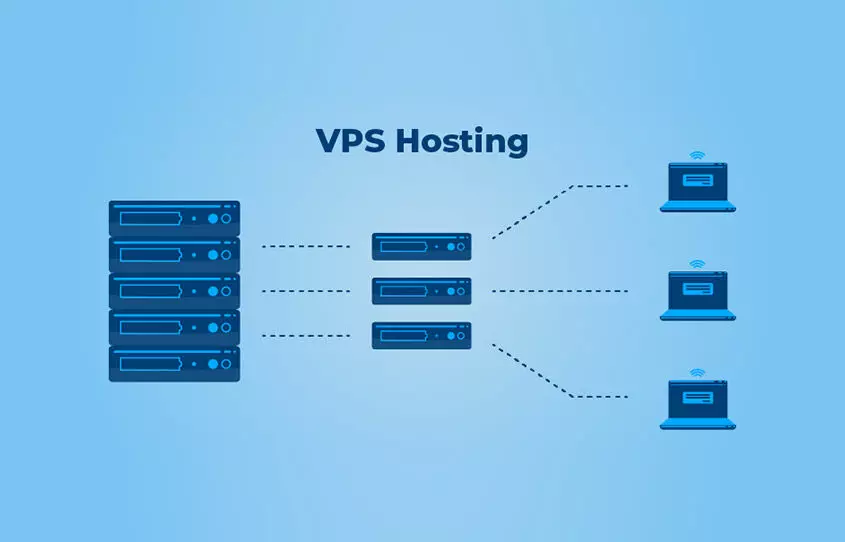Choosing the Right VPS Server Plan: A Comprehensive Guide

Introduction:
In today's digital landscape, selecting the right hosting solution is paramount for businesses and individuals alike. Among the myriad options available, Virtual Private Server (VPS) hosting stands out as a versatile and powerful choice. VPS server plans to offer users the flexibility and control of a dedicated server, combined with the cost-efficiency of shared hosting. In this comprehensive guide, we will delve into the intricacies of choosing the perfect VPS server plan to meet your specific needs. Whether you're launching a new website, running an e-commerce store, or hosting a complex web application, understanding the nuances of VPS hosting is essential for success.
When it comes to the best VPS server plans, VPS Malaysia emerges as a leading provider, offering unparalleled reliability, performance, and support. With a diverse range of plans tailored to accommodate various requirements, VPS Malaysia stands out for its commitment to delivering high-price performance products. Whether you're a small business looking to establish an online presence or a growing enterprise in need of scalable hosting solutions, VPS Malaysia's VPS server plans are designed to exceed expectations. With robust infrastructure, state-of-the-art security features, and round-the-clock technical support, VPS Malaysia sets the standard for excellence in VPS hosting services.
Understanding VPS Server Plans
In the realm of web hosting, Virtual Private Server (VPS) plans to offer a compelling middle ground between shared hosting and dedicated servers.
A. Explanation of VPS Technology
VPS hosting operates on virtualization technology, where a single physical server is partitioned into multiple virtual servers, each functioning independently. This setup ensures that resources such as CPU, RAM, and storage are allocated to each virtual server, providing users with dedicated resources akin to a dedicated server.
B. Advantages of Using VPS Server Plans
VPS server plans offer several advantages over other hosting options. These include:
Scalability: VPS hosting allows for easy scalability, enabling users to upgrade or downgrade resources as per their requirements.
Control: With root access or administrative privileges, users have full control over their VPS environment, including the ability to install custom software and configure server settings.
Reliability: Resource allocation and isolation in VPS hosting ensure consistent performance and minimize the risk of server downtime.
Cost-efficiency: Compared to dedicated servers, VPS hosting is more cost-effective while still offering dedicated resources and control.
Assessing Your Hosting Needs
Before selecting a VPS server plan, it's essential to assess your hosting requirements thoroughly.
A. Determining Website Requirements
Consider factors such as expected website traffic, storage needs, bandwidth requirements, and the nature of your website's content and applications. Understanding these metrics will help you choose a VPS plan with adequate resources to support your website effectively.
B. Identifying Specific Application Needs
If your website includes resource-intensive applications such as e-commerce platforms or media hosting, prioritize VPS plans with sufficient CPU and RAM to ensure optimal performance. Different applications may have varying resource requirements, so it's crucial to align your hosting plan accordingly.
C. Considering Future Scalability
Anticipating future growth is vital when selecting a VPS server plan. Choose a provider that offers scalable options, allowing you to upgrade resources seamlessly as your website traffic and requirements expand. Planning for scalability ensures that your hosting solution can accommodate future growth without disruptions.
Types of VPS Server Plans
Virtual Private Server (VPS) hosting is a popular choice for businesses and individuals who require more resources and control than shared hosting can provide. There are several types of VPS server plans available, each with its own set of features and benefits.
A. Linux vs. Windows VPS Plans
Linux VPS Plans are often chosen for their affordability and flexibility. Linux, being an open-source operating system, allows users to modify the system to fit their specific needs. It's also compatible with many free and open-source applications, making it a cost-effective choice for many users.
Windows VPS Plans are preferred by users who need to run applications that are specific to the Windows environment. These might include ASP.NET websites, Microsoft SQL databases, or any other software that requires Windows. While Windows VPS plans may be slightly more expensive due to licensing costs, they offer seamless compatibility with Microsoft products.
B. Managed vs. Unmanaged VPS Plans
Managed VPS Plans are ideal for users who prefer to have the hosting provider handle server maintenance tasks such as software updates, security patches, and system backups. This allows users to focus on their website or application without worrying about server management.
Unmanaged VPS Plans give users full control over their server environment. This means users are responsible for all aspects of server management. While this requires more technical knowledge, it provides the flexibility to customize the server to meet unique requirements.
C. Specialized VPS Plans
There are also Specialized VPS Plans designed to cater to specific needs. For instance, a Forex VPS is optimized for Forex trading applications, providing a stable and secure environment for executing trades. Similarly, a Minecraft VPS is tailored for hosting Minecraft game servers, offering the necessary resources for smooth gameplay.
D. Comparison of Different VPS Configurations
VPS plans can also be differentiated based on their hardware configurations. Key factors to consider include:
CPU: The number of CPU cores affects how quickly your server can process information.
RAM: More RAM allows your server to handle more simultaneous tasks, which is crucial for high-traffic websites or complex applications.
Disk Space: Adequate disk space is necessary to store your website files, databases, and emails.
When choosing a VPS plan, it's important to assess your needs and understand what each plan offers. This will ensure you select a plan that provides the best performance for your specific requirements.
Conclusion
In the fast-paced digital landscape, selecting the right VPS server plan is crucial for ensuring the optimal performance, reliability, and scalability of your website or application. By understanding the intricacies of VPS technology and thoroughly assessing your hosting requirements, you can make a well-informed decision that aligns with your needs and budget.
As you navigate the plethora of VPS hosting providers in the market, it's essential to prioritize reliability, performance, and customer support. One provider that consistently stands out in these aspects is VPS Malaysia. Renowned for its commitment to delivering high-price performance products, VPS Malaysia offers a range of VPS server plans designed to cater to various needs and budgets.








